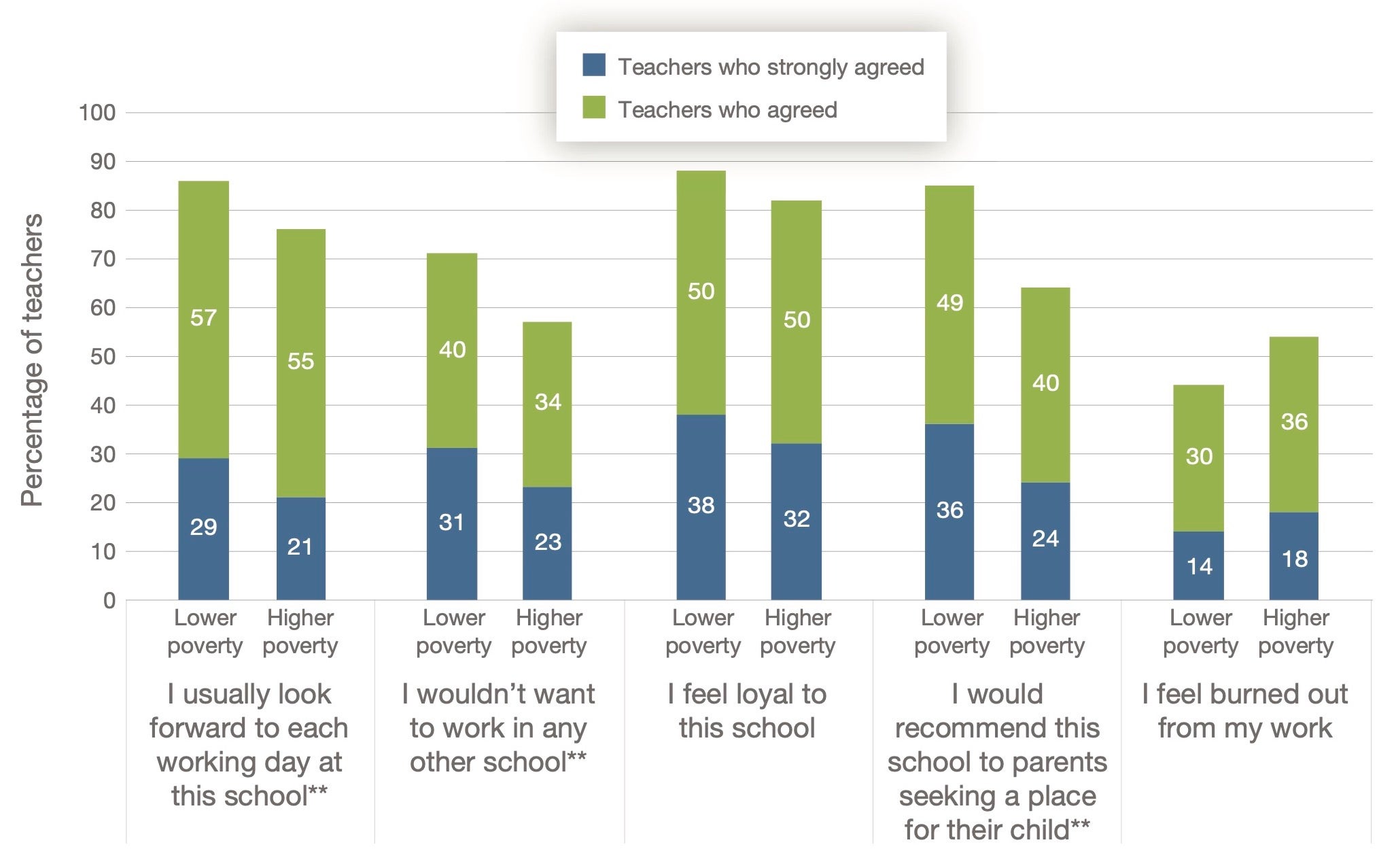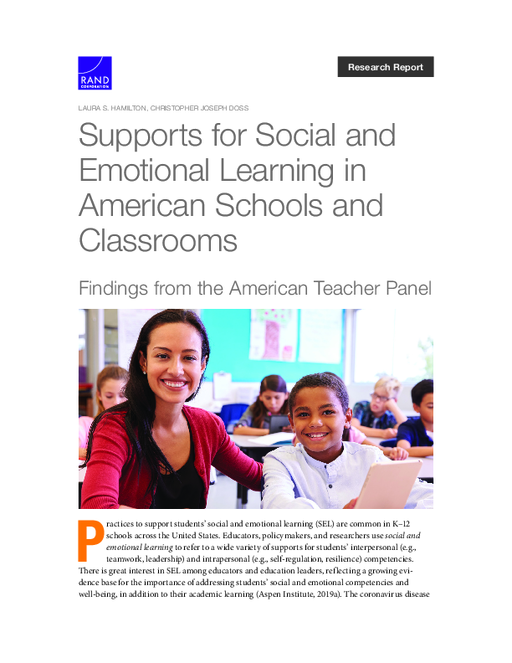Breadcrumb
- Wallace
- Reports
- Supports For Social And Emotiona...
Supports for Social and Emotional Learning in American Schools and Classroom
Findings from the American Teacher Panel

- Author(s)
- Laura S. Hamilton and Christopher Joseph Doss
- Publisher(s)
- RAND Corporation
- DOI Link
- https://doi.org/10.7249/RRA397-1
Summary
How we did this
The research presents results from a spring 2019 survey given to a nationally representative sample of K–12 teachers. Researchers fielded the survey to 1,998 teachers, with 1,238 responding, for a completion rate of 62 percent.
What do teachers really think about social and emotional learning (SEL) efforts in their districts and schools? This report addresses that question, along with other issues, such as:
- How schools are attempting to promote SEL
- What conditions are in place to support it
- How these practices and conditions differ across schools
To that end, the RAND Corporation conducted a survey in spring 2019 via the American Teacher Panel, a nationally representative sample of K-12 teachers. RAND received responses from more than 1,200 teachers working in schools across the country. They varied by characteristics such as enrollment and racial and ethnic composition.
The evidence from this study can help leaders and policymakers better support teachers carrying out SEL efforts.
Key Findings
The research revealed findings in a variety of areas.
- Confidence vs. lack of control. Most teachers expressed confidence in their ability to improve students’ social and emotional competencies. At the same time, many teachers felt that factors beyond their control had a greater influence on students’ SEL than they did. Also, pressure to improve students’ academic achievement made it difficult to focus on SEL.
- Support. While most teachers said their school has a culture that is supportive of SEL, the percentage was higher for teachers in lower-poverty schools (71%) than those in higher-poverty schools (55%). Overall, 80% of teachers said they wanted more SEL lesson plans and curriculum support.
- Professional development. Teachers indicated a need for additional professional development on several topics. They included integrating SEL into academic instruction, adapting SEL to different cultures and to students with different learning needs, and reviewing and using SEL data.
- Job satisfaction and well-being. Overall, teachers reported high levels of job satisfaction and general well-being. But ratings were lower among teachers working in higher-poverty schools. In addition, higher levels of teacher well-being were associated with greater use of SEL practices.
Implications for Districts and School Leaders
The report offers ways state, district, and school leaders can help support the take-up and effective use of SEL practices, such as:
- Addressing teacher well-being and burnout, especially among teachers at schools serving higher numbers of economically disadvantaged students
- Providing professional development, focused especially on adapting SEL to different cultures and using student SEL data to inform instruction
- Equipping principals and other school leaders to set a schoolwide vision for SEL
There’s also a separate index with information about the research data and methodology.

Teachers’ job satisfaction and well-being can both reinforce and be influenced by the conditions in their schools—particularly the extent to which the school has a supportive climate.
Key Takeaways
- Researchers found a relationship between teachers’ sense of well-being in school and their emphasis on SEL.
- Teachers say they are confident in their ability to improve students’ SEL skills. But they also want more lesson plans, curriculum support, and professional development on key topics.
- Many teachers feel their school lacks a clear vision and roadmap for SEL.
Visualizations

Materials & Downloads
What We Don't Know
How effective are any of the approaches to SEL examined by researchers?

